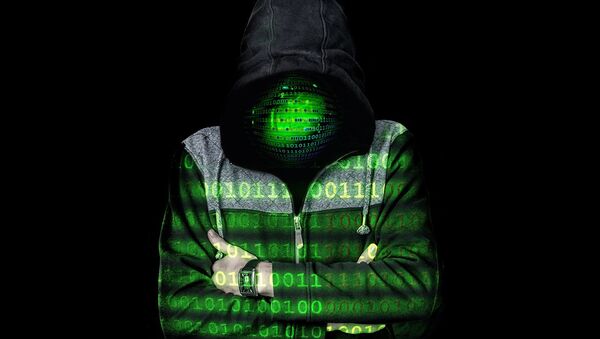Europol director, Rob Wainwright, issued a stark warning this week that cybercrime is on the rise, and that law enforcement is struggling to keep pace.
In particular, Mr. Wainwright highlighted the fear that terrorists could commission the freelance services of cybercriminals to further their activities.
"While the extent to which extremist groups currently use cyber techniques to conduct attacks appears to be limited, the availability of cybercrime tools and services, and illicit commodities such as firearms on the darknet, provide ample opportunities for this situation to change."
See 8 key #cybercrime trends identified by #IOCTA16. 2016 sees worrying evolution of established trends https://t.co/3xHzbMlERg @EC3Europol pic.twitter.com/kbZHisomi5
— Europol (@Europol) September 28, 2016
Jake Hockley, the Director of Marclay Associates, a cybersecurity firm, told Sputnik that this kind of outsourcing makes cybercrime more difficult to track and intercept.
"If the criminals and militants speak to the right people, online protection and the use of the Darknet, accessed via the TOR browser, can make it very difficult for law enforcement to track down who is at the end of an email address or chat username. Traffic is, by default, encrypted in TOR so this makes monitoring traffic difficult.
"However, there are numerous scammers on the Darknet, offering a range of services and, whilst you can make a purchase of a firearm or hacking exploit, you are also just as likely to be ripped off by a fellow criminal," Jake Hockley told Sputnik.
Europol also called for greater security collaboration across national borders.
"Law enforcement presence in an area that has no effective national boundaries causes issues. To effectively progress such investigations requires at least EU-level cooperation. Given the additional challenges investigations on the Darknet present to law enforcement, collaboration and the sharing of intelligence is essential," Rob Wainwright said.
So What is the Darknet?
Cath Senker is an author who focuses on cybercrime in her new book, Cybercrime and the Darknet.
"The Darknet is anything that is not visible to regular users: you can't just Google those sites. It's everything that's beneath the surface and that does include databases and subscription only services," Cath Senker told Sputnik.
"They can buy and sell illegal goods and services that you can't do so easily on the surface net because there are no control mechanisms there. So clearly, that gives opportunities."
"Interestingly, my book does look at the other side of that, which is that it [the Darknet] does provide opportunities for people who do need to have freedom of expression, because it is unsupervised," Ms. Senker added.
Mr. Hockley from Marclay Associates, explained the kinds of tools that cybercriminals deploy to extort money from their victims.
"The attack that most companies fear the most is the targeted attack using sophisticated (or 'zero day') malware. Zero day malware is something that has not had a security patch released for it, so cannot be defended against. In these attacks, the aim of the hacking group is to steal all the information that resides in a company's database.
"In this type of attack nothing is left — so the company is faced with the very real prospect of serious reputational damage which may be fatal. The motives for this kind of attack vary and often this kind of attack is delivered for either political or business competition reasons. So the company may not know it has been attacked for months or even years. Companies that deal with government contracts, particularly in defense, are targeted by hostile nation states with this kind of attack."
"If they are looking for a mass attack against multiple targets for generating money then ransomware continues to be developed that will try to circumvent anti-virus programs. Some of these gangs are well resourced and the ransomware industry is worth millions. They will send out an email with an attachment or, as is becoming more common, will compromise a website and use it to host malware which they will then try and get users to visit.
"This will then launch the program on the victim's computer, silently encrypting everything on the computer (or network) and then asking for a 'ransom' to be paid in bitcoins to decrypt the information. It is the digital version of extortion," Mr. Hockley told Sputnik.
The UK is particularity vulnerable to Distributed Denial of Service — or DDoS — attacks, which aim to flood a network or server with so much traffic that it cannot cope and basically "crashes." In August, it was revealed that the UK gets hit by 9.3 % of the world's DDoS attacks — second only to the United States.
Mr. Hockley explained the consequences for targeted businesses:
"The gang will use multiple compromised computers in multiple locations to remotely send requests to the server simultaneously, a bit like a thousand calls all coming into a call centre at the same time. Cyber gangs are known to threaten companies with DDoS attacks and demand money or they will be attacked. The consequences for, say, an online retailer who has their website attacked in this manner are huge."
Europol Director Rob Wainwright, also commented on how criminals are exploiting the trend across societies the world over, to increasingly depend on technology and the Internet in our day to day lives.
Europol Director @rwainwright67 on #IOCTA16: The relentless growth of #cybercrime remains a real threat to our collective security in Europe pic.twitter.com/kZWwDDc29r
— Europol (@Europol) September 28, 2016
Author Cath Senker, agrees.
"Absolutely, the only reason crime has increased on the Darknet is because more and more people are using the internet. More people are doing their business online, whether it's through online banking or buying goods and services.
"Businesses and people go where the opportunities are, and increasingly they are online.
"At the end of the day, it's easier to defraud someone online, than to do so on the street."


